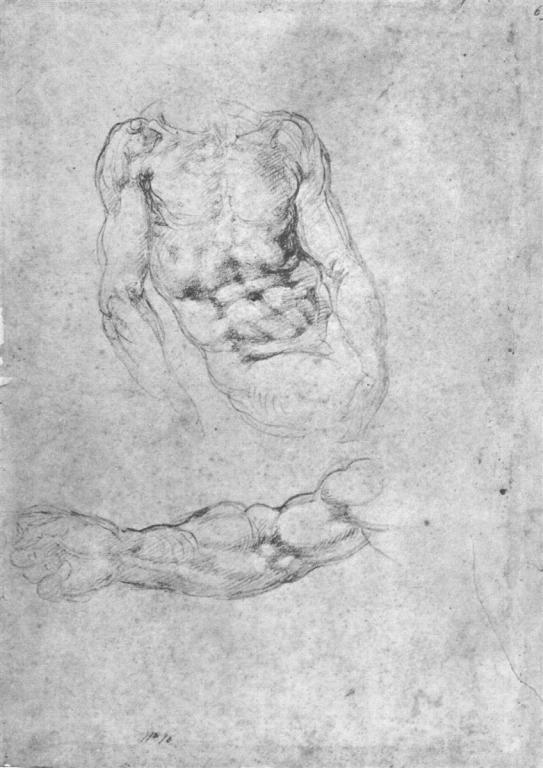
The other day I had to explain to my therapist what the Carolingian Renaissance is. I think sometimes that I must be a very strange patient. But then, I wonder who wouldn’t feel that they were strange.
I’m not about to claim that therapy is for everyone, or that it always works out, or that it’s a straightforward enterprise with predictable outcomes. I find it helpful, which I suppose any damaged person like me would. A long history of trauma means that I have a harder time figuring out what I’m feeling and what I’m doing than others do – but I’ll get to that. It’s illusory, I think, to imagine that therapy is only for the (severely) damaged. As if that’s what it is, or as if going to therapy means admitting you’re fucked up somehow. That’s true enough, I guess, but who are you to be better than being fucked up?
But let’s go backward a couple of steps.
If, as a culture, we spoke and acted in ways that allowed people to be formed with an organized sense of self and a consistent awareness of feeling – if we allowed for the importance of emotional development as well as intellectual, shaping both in a careful dialogue between an individual and a community – if we regularly attended to basic matters of longing and transcendence – if all that, then I would think therapy would be less popular. Less necessary, at least to many. I think often of the logic of monasteries, which is to slowly yet relentlessly form a person into someone able to live with a clear sense of identity in a community, a formation shaped most of all by desire for God. There needs to be some kind of “most of all,” I think, by which self and community are organized. A telos, if you will. And it takes time, care; it takes practice and it takes patience, and a continuous inner searching for what is good and what is not.
The nice thing about a clear telos is that it is able to be formative as both an ideal and, even, as a source for contradiction and contrast. Rebels make the most sense to themselves in a lucid tradition. (It’s not hard to figure out who you are, or who you don’t want to be, in the Star Wars universe. Not that anything in real life is ever as clear as, “Holy crap, he’s got a red lightsaber; he’s evil.”) I’m being vague about what I mean by “tradition” and “culture,” which is perhaps unfair. It works to my advantage, though, since it allows you to imagine whatever is most proximate to your own concerns, which is what I prefer. My point is basically that formation is fundamental to being human, and that this happens at the communal as well as the individual level. You, your family, your hometown, etc., etc. Having a formed and secure sense of self-coherence helps human beings to navigate their lives meaningfully.
Basically: if you’re able to feel that “you,” whoever you think you are, are able to survive even very difficult experiences intact, that’s a coherent sense of self that helps you to adapt, live, and remain the same all at once. You’ve got a sense that you’re somebody. That you can be somebody under distress.
There are all kinds of ways we’re accustomed to being formed. School is perhaps the most ready-to-mind, but I’m pretty sure Pope Francis would want to remind us that family is the first place of formation, and that it forms adults as well as children. Nobody ever stops being formed, shaped; nobody ever stops becoming somebody. Aristotle says as much.
One of the things that formation does is it helps people identify how they feel, why, and what they want to do about it. This might not be cast in terms of emotion, and – at least in the Western traditions I’m familiar with – emotion might be in some way actively concealed, but that doesn’t mean the tradition gives no way of grappling with them. It might be called something else, or rearranged in order of importance, but that is not the same as not being there. I’m essentially saying this: I don’t imagine that Western traditions are necessarily repressive of emotion. That’s a popular idea in some circles, and it’s not my favorite optic for understanding the matter. Point is, we get all kinds of tools for being somebody, and this includes how to wrestle with feeling.
Therapy, I think, deals at least in part in trying to step into a large chasm in our present cultural mode of being: it tries to help people figure out what they feel, and why, and what they might want to do about it. But therapy is also a specialized thing that does more than replace what is broken in a culture or tradition. It devotes itself entirely to the study of what it is like to be a thinking, feeling subject, and it does so as a hybridized form of science and anthropology (as theology would use those words, anyway). That is, simply, a new thing in the history of things. I want to say that, on the one hand, therapy is a response to an emerging problem that was also dealt with in the past, and on the other, that therapy is different than the various methods employed before.
I’m pretty fucked up, and I’ve got trauma for miles and miles – so yay, I had a super fun childhood/adolescence – which also means that I didn’t get to experience certain basic training in how to feel, how to be calm about feeling, how to care about myself without assuming I’m a hateful creature that deserves punishment. Stuff like that. And I definitely can’t figure that shit out by myself or I would’ve already, so I need help finding the patterns of who I am and discovering better ways to be that.
“Trauma” technicalizes the whole thing and has a way of always-already adopting the kind of perspective that would imagine therapy is helpful. But Aristotle talks of habits, and I find it helpful to think of how a poor or broken formation (or even just a good one with some gaps) would train a person in bad habits. And I’m a Christian, so I just don’t buy the idea that I can get better on my own. If I need grace, I may as well also need other humans.
In my case, it’s pretty clear: I’ll have a damn panic attack if I don’t learn how to countenance stress. I need help to do that, and it’s actually a healthy response to ask for help. In other cases, I imagine greater subtleties, like the ones that I often avoid because that shit is hard: how to understand being angry at someone even if they intended no harm, or what it means to grieve, etc. Well…I’m not sure those are actually subtle. You don’t have to be me to need help figuring out what you’re doing, basically.
There are all kinds of ways we already receive help in this. Friends reflect how we feel back to us, and coworkers respond to our patterns of being. If we pay attention, which mostly we don’t, we can learn and we can be formed. I always imagine the Church as the primary place where such formation takes place, particularly at the local level. Catholics, God bless us, have tons of helpful tools for these kinds of things – tools we also break or misuse, but, you know, also use.
And I don’t imagine that therapy can ever replace these things. It focuses in. It’s specific. It deals mostly at the level of the individual, and it is unable for the most part to offer spiritual wisdom, which is so necessary for true formation. What it can do, at most – and most importantly, in my mind – is make room for the reception of spiritual wisdom. It can help a person make themselves ready, to continually be ready, to both receive and to live a life open to the Spirit.
Therapy isn’t the Sacrament of Reconciliation. I’m not going to receive concrete absolution or the grace of healing (though indeed God gives the latter through many means, including therapy). But confession also isn’t therapy: it does not make me take the long time I need to understand the patterns of my existence. It is a part of that process, and if anything encourages us to thematize our feelings and actions to ourselves, but it is not the same as the way of life that in fact it presumes. The sacrament is meant to be a part of a life, and not a replacement for having that part of your life, therapy or no therapy. (And, while we’re on the topic, sort of: a spiritual director is definitely better for discerning the will of God than a therapist would be; I don’t think that’s what therapy would do or replace.)
Nor should it be that the Church must be everything at all times for me. I don’t expect the Church to fix my car for me. Sometimes, it is okay to trust that, by natural means, we might be assisted in dealing with our natures – even as we must also always breathe the sacred air of the liturgy so that we can make all things holy.
I suppose all I’m trying to do is create an interstice, a between-space, where we begin to understand that we need to learn how to intellectualize the patterns of our existence in order to heal them, build on them, reform them. Therapy helps us to discover and deal in this “between.” It’s perfectly sensible, and it only goes sideways when someone wants therapy to do everything when it can’t. Or when someone assumes that there are no possibilities outside of therapy (like the possibility of God), when a therapist wouldn’t even remotely have the competence to figure that one out. Absolutize anything but God, and you’re basically screwed. This is why the prophets hate idols.
There is an expectation that therapy tries to replace religion. This is based in a real historical experience, a cultural memory of things like Sigmund Freud’s blatant hostility toward religion. But this only means that Freud only ever partially understood what he was trying to say; it doesn’t mean that the tradition that emerges out of the “discovery” of psychology is entirely bent. That’s hard for us. One of the hardest things: finding what can be redeemed in what treats precious things (like religion) with deep ignorance or error. Still, we Catholics have a long tradition of doing just that.
There is also this completely annoying idea that therapy is really just rich, white people having problems – mainly the problem of being rich and privileged and white. All that idea means is we haven’t asked the poor what it’s like to be them. That’s all I’ll say about this idea that I clearly severely dislike.
Therapy cannot be all things, but it can be some helpful things. That is all I wanted to articulate today, and I want to thank you in your patience for reading it. I’m just trying to figure things out.












